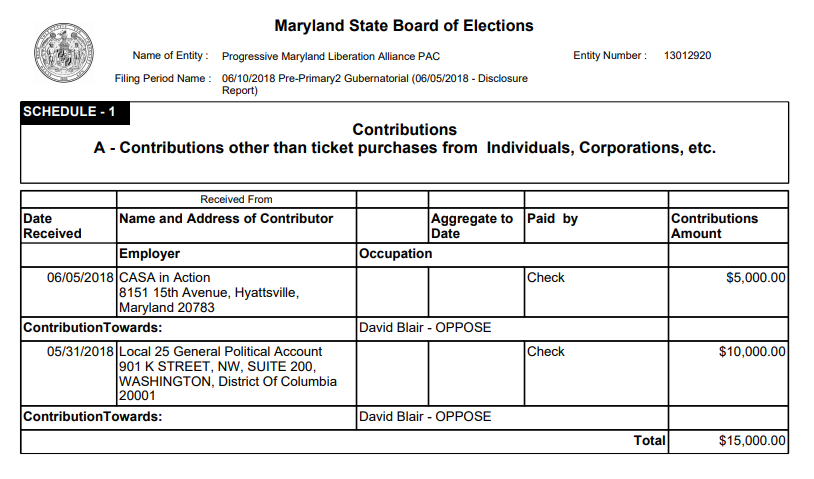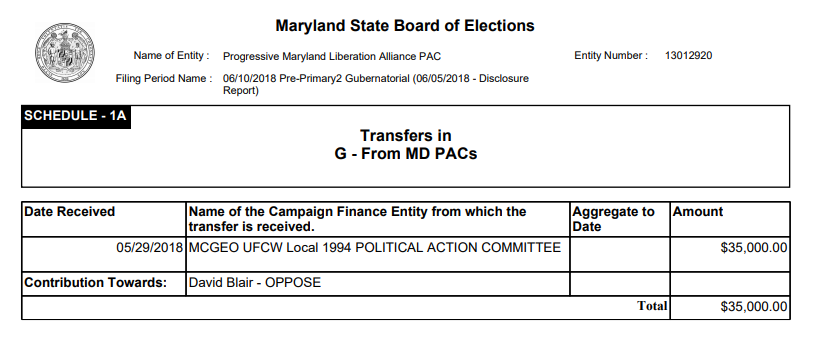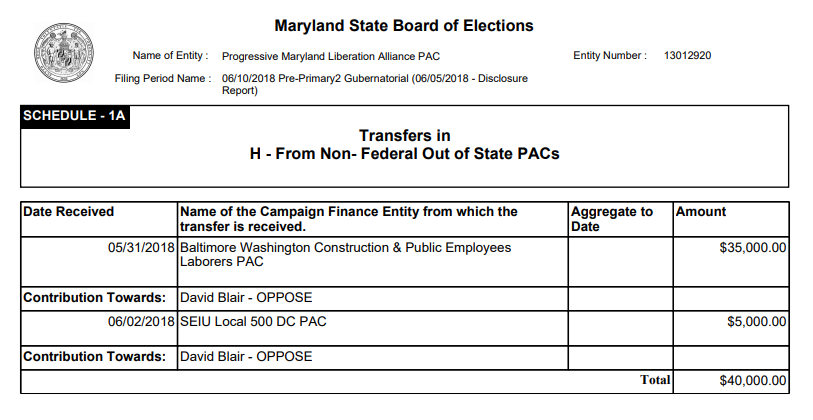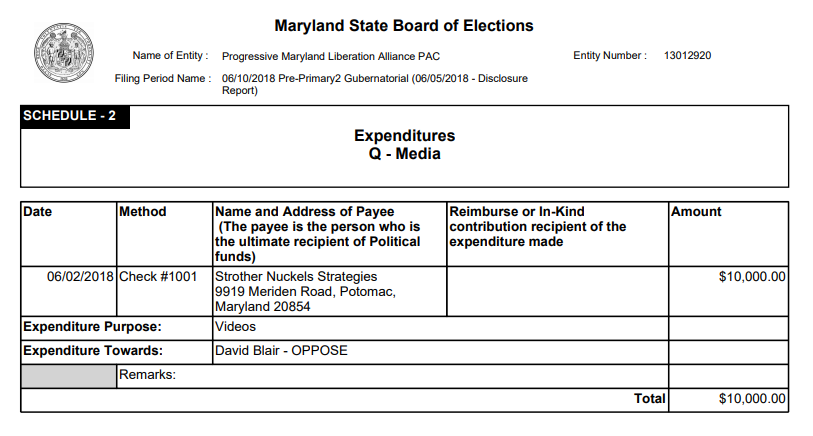By Adam Pagnucco.
The year 2019 is in the books and it’s time for some political awards, both good and bad. Buckle up!
Best Freshman Elected Official (County): District 1 Council Member Andrew “Real Deal” Friedson
Let’s go to the lab and create the perfect politician. We shall start with brains and policy experience. The person has to be a life-long district resident who roams it constantly, addressing issues large and small. The person has to hire good staff. The person has to have the guts to vote no when everyone else votes yes. Fiscal expertise counts too. Add it all up and we just created Andrew “Real Deal” Friedson, the new star of the county council. As a freshman, Friedson is still at the beginning of his elected career. But his ability is off the charts and the Real Deal has just begun living up to his nickname.
Best Freshman Elected Official (State): District 18 Delegate Jared Solomon
True story: when candidate Jared Solomon was running for a seat in the statehouse, he was one of the very few politicians ever who mailed me a hand-written thank-you letter after our introductory interview. Since then, he has become an energetic and conscientious Delegate who jumped feet-first into his district’s two biggest issues: the Beltway project and school construction. Solomon is both one of the smartest people in the room and one of the nicest. That’s hard to pull off for anyone not named Jamie Raskin.
Reporter of the Year: Caitlynn Peetz, Bethesda Beat
You might think that news on public schools is boring. If so, you have never read Caitlynn Peetz’s riveting stories on the rapes at Damascus High School and parental clashes over MCPS’s boundary study. Peetz loves her vocation and it shows. She digs deeper and works harder than just about anyone else in local media. She also happens to be a kind, generous and funny person. How does someone like that wind up in the press?
Will Not Fade Away Award: Brandy Brooks
Most of the county council candidates who did not win in 2018 have faded from the public eye, at least for now. Not Brandy Brooks. She maintained her profile with a strong, though unsuccessful, run for planning board and has retained a loyal following among many county progressives. Last year, I predicted that Brooks would have a great chance to win if she ever runs again and I am now more confident of that than ever.
Most Meaningless New Law of the Year: Liquor Monopoly Name Change
As of July, the county’s Department of Liquor Control was renamed Alcohol Beverage Services. Does anyone care? Aside from whatever companies were paid to change the name on the signs and business cards, the answer is a big fat NO.
Whiplash Award #1
In November, the council voted in favor of a bill mandating 30-hour work weeks for some janitors that its own staff predicted would “likely” kill building services jobs. Two weeks later, the council passed a resolution calling for a renewed commitment to economic development.
Whiplash Award #2
Also in November, the council unanimously passed a new law mandating consideration of racial equity in all county activities. A week later, the council voted to give $500,000 in tax money to a subsidiary of Rupert Murdoch’s Fox Corporation.
Labor Union of the Year: MCGEO
How do you get a 6% raise? You jump up and down and demand a 9% raise, and then when you get 6%, you grudgingly accept it and resolve to come back for the rest later. 2019 will go down as yet another year when MCGEO proved its immense value to its members.
Activists of the Year: YIMBYs
In most years, Council Member Hans Riemer’s bill to liberalize restrictions on accessory dwelling units would have encountered rough sledding and maybe outright defeat. Not in 2019, as MoCo’s YIMBYs – the acronym stands for “yes in my backyard” – sprang into action and helped get the bill passed. YIMBYs, unlike NIMBYs, believe MoCo needs more housing and they have emerged as one of the county’s more effective, albeit loosely organized, issue groups. Additionally, the YIMBY MoCo Facebook page has become one of the most interesting venues for policy and political discussions in the county. If the YIMBYs get more numerous and better organized, they could have a real impact on the next county election.
Do Not Mess with Me Award: Bob Dorfman
When Council Member Hans Riemer released information showing that county liquor stores were losing money, Alcohol Beverage Services Director Bob Dorfman blew him to smithereens. Read this quote from WUSA Channel 9 but hide the children first!
“We have an ill-informed councilmember who has got a politically motivated campaign that’s taking something purely out of context because he as a councilmember should have been smart enough to know that a plan had already been put in place almost a year ago that addresses each of the components of the loss,” Alcohol Beverage Services Director Robert Dorfman said.
Dorfman said the county has already cut the stores’ losses by $2-million a year, and hopes they’ll turn a $5-million dollar profit within a few years.
He said Riemer was needlessly panicking employees who work at the stores. “Mr. Riemer, by putting out all this stuff to the press, is causing those employees, hard-working, good, county employees, that he supposedly represents, obviously he’s not doing it very well, obviously he doesn’t care much, those employees are getting calls from customers and family members asking them whether they’re going to have jobs,” Dorfman said.
This is not the first time Dorfman has slammed a liquor monopoly critic. He once went after Seventh State founder David Lublin too. All of this has me feeling jealous. I’m one of the fiercest opponents of the liquor monopoly around and I have written countless columns denouncing it. What do I have to do to get you to spank me, Bob?
Retirement of the Year: Glenn Orlin
Former county council deputy staff director Glenn Orlin is one of the great heroes of county government who is unknown by much of the general public. In a decades-long career in both the state and county governments, Glenn has become one of the foremost experts on capital budgets and transportation in all of Maryland. The council relied on his incredible institutional knowledge, his expertise and his good judgment as much as any other single staff member. What makes Glenn truly great is not just his competence and experience, but his patience, generosity and ability to teach others. His legacy includes a huge portfolio of transportation projects, including his beloved Purple Line, as well as generations of folks who have learned from him – including me. Glenn is still doing contract work for the council, but whoever eventually succeeds him will have very big shoes to fill.
That’s all until next year!








